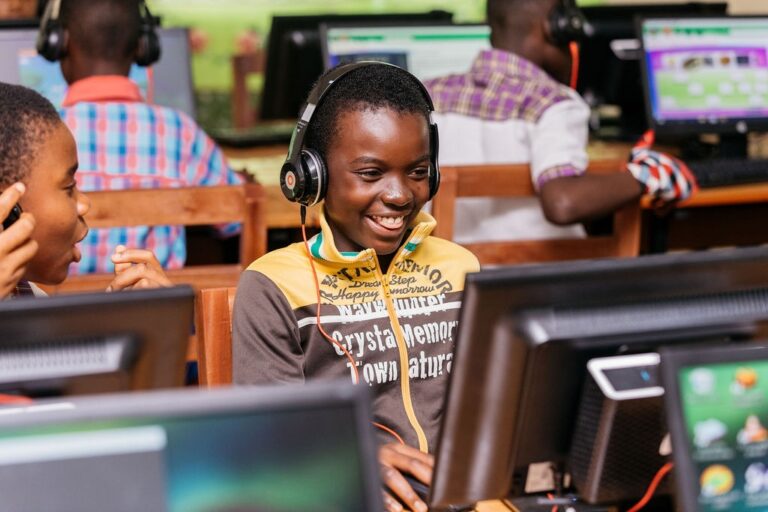By: David Boutcher | Theirworld | Published on 11 Apr 2018
The ground-breaking Learning Generation report highlighted that 40% of employers around the world are already struggling to recruit people with the skills they need, it said “the ability to acquire new skills throughout life, to adapt and to work flexibly will be at a premium, as will technical, social, and critical thinking skills”.
Yet in light of this, the most revealing aspect of the report was its recognition that learning starts early in life with the under five-year olds and the benefits of this investment is seen well into adult years.
Evidence also shows that the positive impact of investing in pre-primary education are found to be the greatest for the most disadvantaged – who tend to be the least prepared when starting primary school.
The World Bank has already prioritised Early Childhood Development as “one of the smartest investments a country can make in its future” and world leaders added a target to the Sustainable Development Goals to ensure all girls and boys have access to quality early childhood development, care and pre-primary education so that they are ready for primary education”.
Economies around the world are recognising the need to give every child a strong learning journey if they are to cope with the future and manage their own families and communities. One study estimates that the return for investing in early childhood care and education of the most disadvantaged children can be as high as $17.
So the evidence is clear. But what is happening in practice?
A new report published this week by children’s charity Theirworld and written by Professor Pauline Rose and Asma Zubairi, of the REAL Centre, University of Cambridge, shows that pre-primary education receives just 1% of all aid funding going to pre-primary education.
This startling new evidence reflects the findings of an earlier report which showed that only 38 countries currently provide free compulsory pre-primary education – this means that 155 of the 193 who committed in 2015 to provide all children with pre-primary education so that they are ready for primary education by 2030 do not yet do so.
This is why a growing number of organisations with expertise in the early years are now calling for Donors and Governments to invest in Early Childhood Development.
This is a growing priority area for the Global Partnership for Education which is focused on providing access to quality education for the poorest and most marginalised children, as well as Education Cannot Wait, a fund supporting education in humanitarian emergencies and conflicts. Both organisations have a crucial role to play in supporting pre-primary education and champion investments in this area, as its easy to forget how important the early years are when looking at the scale of crises impacting children’s lives. The international finance facility for education will also make it possible for governments to invest even more in pre-primary education.
There is also growing interest in the early years from corporates around the world – such as Lego, Ikea and Discovery Learning – right through to the big IT companies such as Intel, HP and Microsoft who can all play a role. There is no lower age limit to what they provide.
The main call of the new research from Theirworld is for national Governments and aid donors to spend a minimum of 10% of their education budgets on pre-primary education to redress the missing piece in early years support.
The benefits go beyond creating an adaptable workforce able to cope with future changes in the workplace, the benefits are there for greater progress across all the Sustainable Development Goals.
About David Boutcher
David Boutcher is a Trustee and Secretary of Theirworld. He serves on the Executive Board of the Global Business Coalition for Education and represents the private sector on the Global Partnership for Education board.



![[Preliminary Report] CRNA Collaborative Research for Exploring Factors Nurturing"Happy and Resilient" Children among Asian Countries](https://equity-ed.net/wp-content/uploads/2024/09/1725672182698.jpg)


